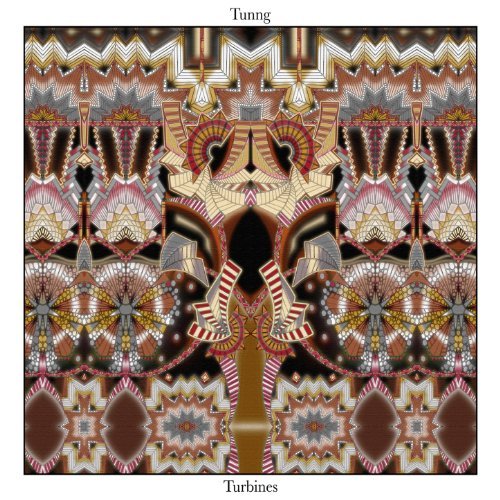
Tunng
Turbines
Release Date: Jun 18, 2013
Genre(s): Folk, Pop/Rock, Alternative/Indie Rock, Indie Rock, Indie Electronic, Indie Pop, Acid Folk
Record label: Full Time Hobby
Music Critic Score
How the Music Critic Score works
Buy Turbines from Amazon
Album Review: Turbines by Tunng
Great, Based on 7 Critics
Based on rating 8/10
Over the course of their development, U.K. indie collective Tunng have always been torn between their folky hearts and their sometimes manic electronic impulses, usually ending up in a hypnotic middle ground between the two. With fifth full-length Turbines, Tunng strip away all of the sonic clutter that at times results in their experimental leanings, turning in nine tracks that cleanly mesh together disparate modes of gentle acoustic reflection, cold, mechanical beats, and almost sci-fi ornamentation from a collection of vintage synthesizers.
Based on rating 4/5
Like The Kinks Are the Village Green Preservation Society, Tunng's fifth album is set in a fictional village – but where Ray Davies luxuriated in bucolic nostalgia, Tunng convey a landscape of vague disquiet and a cast of misfits. There's the girl unravelled by a kiss in Bloodlines; the sweet-sour woman in Trip Trap, described in such fairytale language you wonder if she's a witch; the truculent gang at the heart of The Village, who "don't believe what they have sold us". The music is shaped by the characters, with rhythm particularly affected: in The Village, percussive clicks and snapping chords power across electronic samples until the rhythm gets trapped in a loop; in Follow Follow and So Far From Here, both depicting village outsiders, guitars, keyboards and vocals are syncopated, creating an atmosphere of slipperiness and shift.
Based on rating 8/10
It’s not terribly surprising when a band, nearly ten years into their careers, starts to mellow out a bit. Even the fiercest of punk bands seem to remember owning an acoustic guitar. But when it’s an electro-folk band, there’s a question of how much a band can logistically mellow. Tunng have gotten a little less energetic with every album, a solemnity made most apparent by the less prominent role percussion has played in the arrangements and mixes.
Based on rating 3.5/5
A decade in the subtly skewed, mildly mind-bending folk-pop game, Tunng have progressed from English eccentrica draped in wilful weirdness to a more inclusive, warm pastoral songcraft. Exciting, huh? Well, while Mike Lindsay and crew will never have you hanging on to your hat with the likes of ‘So Far From Here’ with its mournful twang and rattle and sudden pocketsof sproinging African rhythms, or the space-burbling psych wash of the seriously misnomered ‘Heavy Rock Warning’, their fifth album (strung together by a loose concept about an imagined village you needn’t worry about) is as softly satisfying as a bobbly old jumper. One with thumbholes.Emily Mackay .
Based on rating 3
Now having worked together for a full decade, Tunng are a band fortunate enough to have honed their idiosyncratic sound over the long term. Turbines is, remarkably, their fifth album, and whilst it’s not sufficiently radical for them to shake the folktronica tag with which they have often been burdened, it does see a further broadening and sharpening of their musical palette. Mike Lindsay has claimed that there is an overarching concept behind Turbines – that of a fictional village.
Opinion: Excellent
The first time I laid ears upon Comments of the Inner Chorus, Tunng’s second album, it was a revelation; alternative folk with strange percussion that was both intelligent and heartfelt. Comments… was followed by Good Arrows and then, well, …And Then We Saw Land, both of which dialled down on the obscure samples and upped the hook-quotient to generally maintain a stellar quality. So, though the standard ‘high expectations’ caveat applies to Turbines, I’m going to skip the suspense and confirm that in its own right it’s appropriately fantastic, be you a veteran or newcomer.
Opinion: Very Good
For ten years and four albums before the release of ‘Turbines’, Tunng have been ploughing their own furrow, augmenting their acoustic melodies with samples and electronics, gradually sanding down the jagged edges from the electronic side of their output. In the three years since their last full length, ‘…And Then We Saw Land’, frontman Mike Lindsay has upped sticks and moved to the isolated Icelandic town of Husavik, recording the Cheek Mountain Thief album with local musicians. Absence appears to have made the heart grow fonder though and the band have returned with an album as cohesive and accessible as any they’ve previously released.
'Turbines'
is available now

